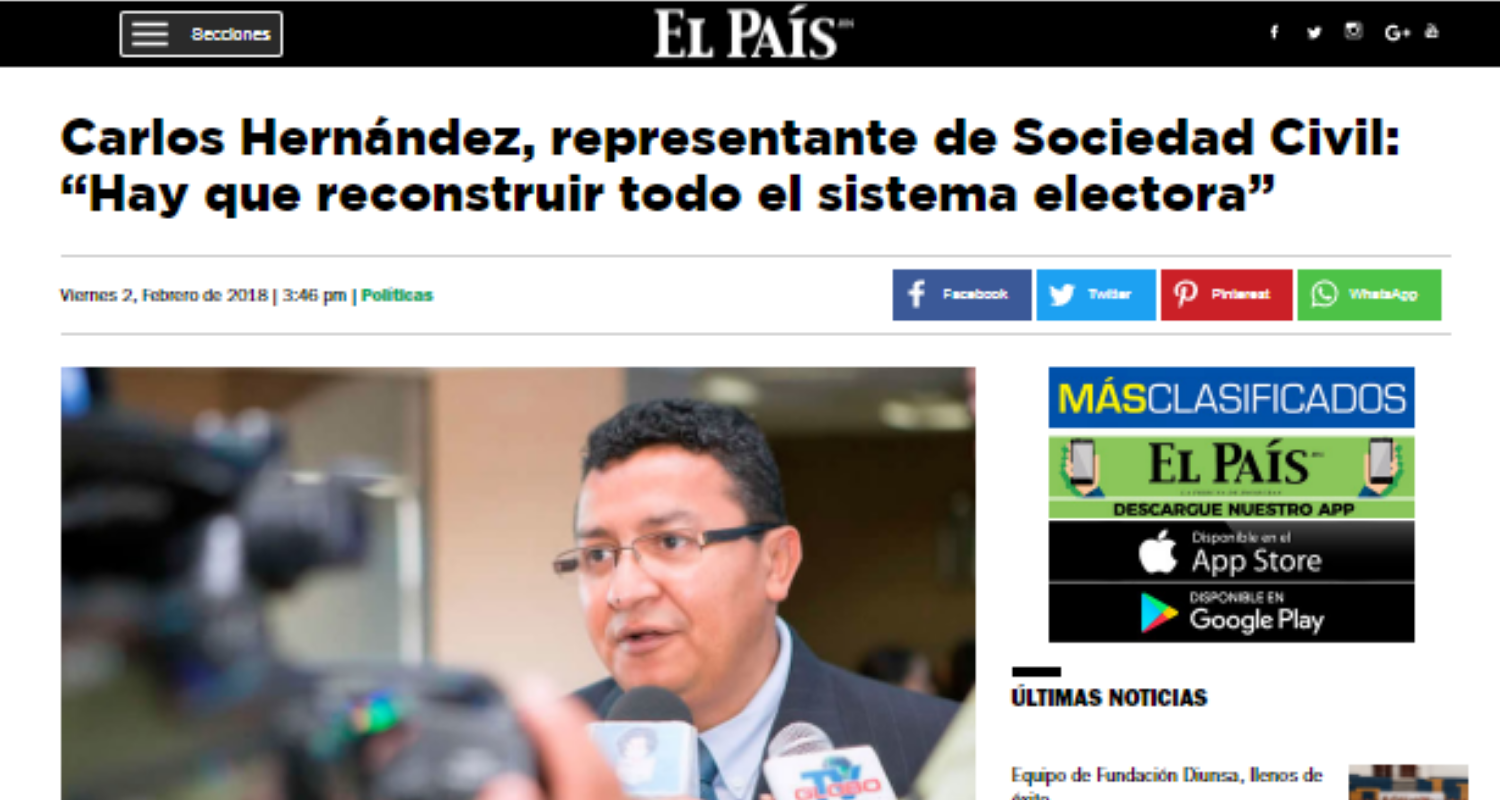March 20, 2018
ASJ-Honduras (formerly known as AJS-Honduras) director Carlos Hernández graces another newspaper front page, the headline calling him a representative, not just of ASJ-Honduras, but of Honduran “Civil Society”. But what exactly does that mean?
WHAT IS CIVIL SOCIETY?
“Civil society is the voice of the people expressed through organizations that dedicate themselves to promoting change.” –Nury Alvarado, director of security and justice initiatives for ASJ-Honduras
“Civil Society is any person or institution that does not pertain to the state, governments, or political parties,” –Blanca Munguía, director of social programs for ASJ-Honduras
“Civil Society is the collection of independent, organized entities that promote citizen participation and mobilization in order to achieve societal well-being. Civil Society acts in favor of citizens…This includes advocating in government decisions in order to improve citizens’ quality of life and strengthen the democratic system.” –Judy Donaire, director of transparency initiatives for ASJ-Honduras
Sometimes referred to as the “third sector”, as it encompasses all organizations that fall outside of public (government) or private (business) sectors, civil society includes nonprofit organizations, labor unions, churches, community or activism groups, academic institutions, and any other institution made up by citizens for a common goal or purpose.
ASJ was born from the purpose of bringing about justice for the people of Honduras while inspiring and encouraging Christians around the world to participate in doing justice in their own context. We are civil society in Honduras, but we also work with civil society to unite diverse groups around a common conversation of peace and justice.
WHY IS CIVIL SOCIETY IMPORTANT?
“If there is no civil society, there can be no balance. A true democracy is an expression of the will of the people. Political candidates may say that they represent these public interests, but once they are in power, they often do not. Civil society can play the role of the voice of citizens, promoting their rights and assuring that political leaders really meet their functions.” -Nury Alvarado
“A Strong Civil Society strengthens democracy and provides important checks and balances to the state. Frequently, cries for social justice have emerged from civil society. It is one of the actors that demands justice, transparency, efficiency, and effectiveness in the use of public resources by public officials. It can also demand accountability.” –Blanca Munguía
“Civil Society exercises an important role. As civil society is strengthened, so is a country’s democracy. Civil society becomes a sector that advocates for the interests of society, seeks government accountability, and verifies that government actions are going in the direction of the common good. In many occasions, civil society helps to cover empty spaces left by the government, offering services to society, in particular to vulnerable groups, either supporting their development or advocating for their interests.” –Judy Donaire
“Honduras’ network of civil society organizations play an important role in identifying corruption and weakness in government structures and also in supporting change,” says Kurt Ver Beek, co-founder of ASJ-Honduras
HOW CAN WE PARTICIPATE IN CIVIL SOCIETY?
ASJ works to be a leader in this all-important “third sector”, working alongside churches, communities, and groups of passionate citizens in order to reduce violence in Honduras, eliminate impunity, and contribute to an environment where people can flourish and achieve their full potential.
What civil society organizations are you involved in where you live? Do you have a church, a club, or a nonprofit where you invest your time? How do these organizations and spaces allow you to raise up your voice, incite change, and do justice in your own context?
You may feel ill-equipped, uninformed, or uncertain about your abilities – but one lesson that ASJ has learned is that the purpose of civil society is to be made up of ordinary citizens, in order to promote the rights and well-being of ordinary citizens.
As long as we share values like solidarity, integrity, patience, and bravery, each of us – no matter our experience or preparation – can be part of this change.
“Never doubt that a small group of thoughtful, committed citizens can change the world; indeed, it’s the only thing that ever has.” –Margaret Mead



















